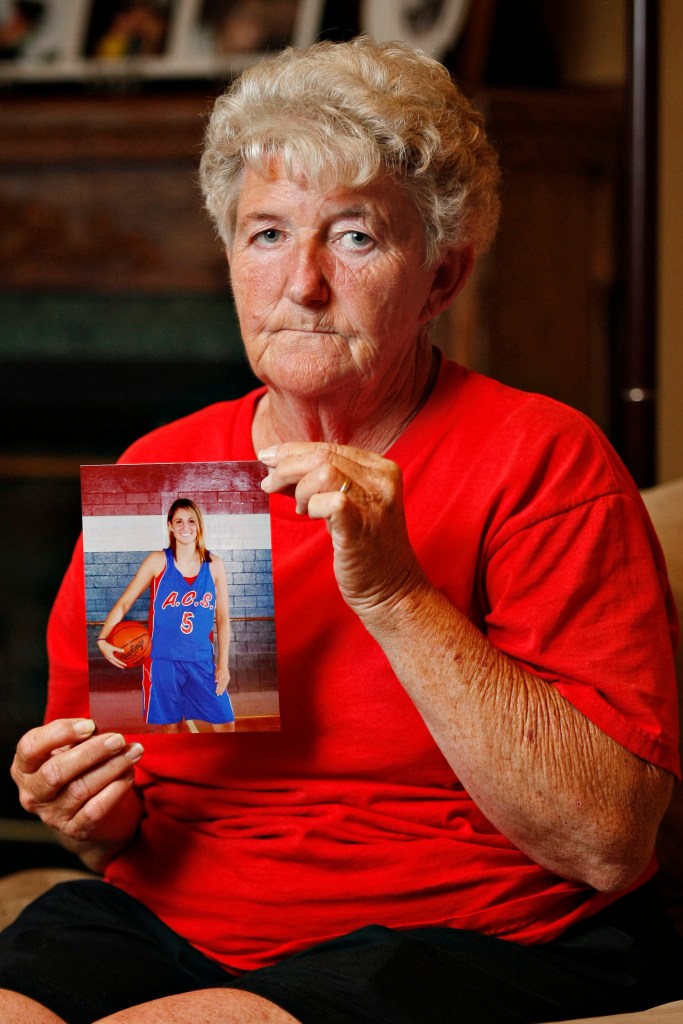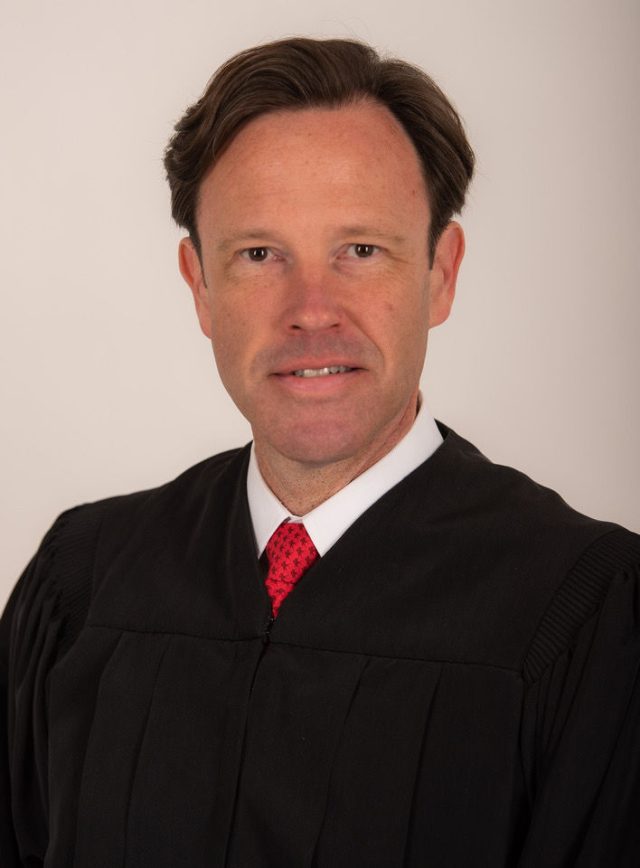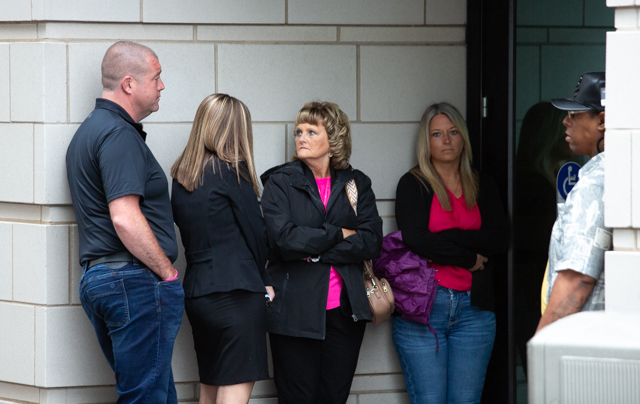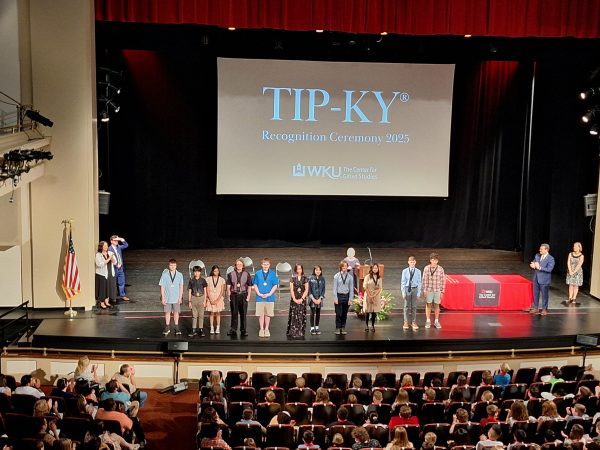Copass: Can people ask for death penalty?
Published 10:27 am Thursday, February 6, 2014

- Diane Mahaney, of Scottsville, Ky., holds a photo of her slain granddaughter Chelsey Mahaney at her home Thursday, July 26, 2012, in Scottsville, Ky. Charles Copass is charged with Chelsey Mahaney's murder. (Photo by Alex Slitz/Daily News)
SCOTTSVILLE — Recorded statements that murder suspect Charles Copass gave to police soon after being taken into custody should not be played for jurors at his trial because he had not given up his right to remain silent, Copass’ defense team argued Wednesday.
Copass, 36, of Scottsville, is charged with murder, fetal homicide, first-degree robbery, theft by unlawful taking and tampering with physical evidence in connection with the death of Chelsey Mahaney of Scottsville.
Mahaney, 22, was found stabbed to death at Copass’ residence at 441 Barren River Dam Road on June 11, 2012. She was about four months pregnant at the time of her death.
Copass’ attorneys, Michael Bufkin and Pat Roemer, in a motion Wednesday in Allen County Circuit Court sought to suppress statements Copass made to law enforcement June 12, 2012, shortly after his arrest, and another made at a June 29, 2012 interview at the Barren County Corrections Center.
Toward the end of the hearing, Allen Circuit Judge Janet Crocker asked attorneys to submit briefs supporting their arguments within seven days.
Allen County Commonwealth’s Attorney Clint Willis called Kentucky State Police Detectives Erik Salman and Chad Winn and Scottsville Police Department Chief Jeff Pearson to testify about their interactions with Copass on those dates.
Pearson, then a detective in Scottsville, said a meeting to enable Copass to surrender to police had been arranged in the early morning hours of June 12, 2012, after Pearson’s ex-wife, a probation and parole officer who had Copass on her caseload as a sex offender, had a phone conversation with him.
Copass had told Melinda Pearson over the phone that he had killed Mahaney, Jeff Pearson testified.
Jeff and Melinda Pearson met Copass at a Minit Mart in Scottsville, where he had been driven by his brother and cousin.
A brief audio clip was played in which Jeff Pearson can be heard telling Copass that he was informed of the phone conversation with Melinda Pearson in which Copass admitted killing Mahaney.
The chief testified that Copass nodded his head in response.
Copass was then read his rights by Jeff Pearson, responded “yes” to the detective and was placed in handcuffs.
Bufkin asked Jeff Pearson about statements he made to Copass that ended with “OK” during the interaction, including the statement about the earlier phone call with Melinda Pearson.
The chief testified that those statements were meant to communicate what he intended to do now that Copass had arrived rather than questions pertaining to the investigation.
Copass was taken to the interview room at the Allen County Sheriff’s Office, where he met Salman.
After Salman took the witness stand, an audio clip of about 11 minutes was played.
“It’s not that I don’t want to talk to you, but I want to talk to my attorney first,” Copass said early in the clip, after which there is mostly silence except for a short string of questions Salman asked Copass to help him complete his arrest citation.
Several minutes after saying that, Copass is heard saying, “Can people request the death penalty?”
Salman testified that he believed Copass had invoked his right to remain silent when he made the statement about talking with a lawyer, and Salman asked no other questions necessary to the investigation at that time.
An audio clip of an interview that Salman and Winn conducted with Copass in Barren County on June 29, 2012, was then played.
Salman testified that the KSP had discussed with its legal branch whether the interview was appropriate after the initial interview, and that he received advice that the second interview could be conducted at least 14 days after the first one if new evidence had come to light.
Salman then spoke of Copass’ demeanor at the second interview.
“I didn’t detect any distress in him at all,” Salman said, noting that Copass was advised more than once of his rights during the approximately two-hour interview. “I was never under the impression that he asked for an attorney.”
Under questioning from Bufkin, Salman said Copass did not sign the form waiving his rights and did not verbalize his intent to waive his rights during the interview.
Salman later insisted during questioning from Willis that Copass had not invoked his right to remain silent or request an attorney after he and Winn reminded him of his rights throughout the interview.
“My impression at the time was Mr. Copass had waived his rights and spoken to us of his own free will,” Salman said. “He made no clear indication that day that he wanted to speak with his attorney.”
Winn testified that Copass had told the detectives that he had wanted to call the KSP to talk with them earlier, but he did not actually do so.
Winn said that Copass appeared to understand everything that the detectives explained to him and that he believed that Copass was not coerced into being interviewed.
A hearing is scheduled in the case this morning to hear Bufkin’s motion to continue the trial, set to begin Feb. 17 in Simpson County.
— Follow courts reporter Justin Story on Twitter at twitter.com/jstorydailynews or visit bgdaily news.com.






